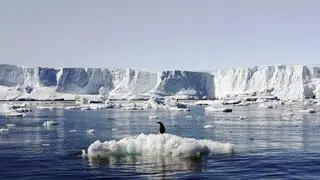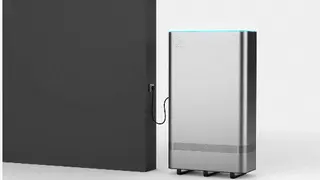India is not a surprise choice for a global company to launch its product that improves access to potable water. The country is facing a water crisis. Eighty per cent of sewage flows into the rivers untreated and studies have found water quality to be among the worst in the world.
As a result, the domestic market for bottled water and reusable bottles is exploding. There are several numbers floating around. A study by Euromonitor International, a research firm, says that the market was worth ₹7,040 crore in 2016. Another research claimed that 42 million reusable bottles were sold in India last year, worth nearly ₹2,000 crore.
“These were a few of the reasons why we decided to introduce our first B2C product in India,” says Bidrupa Sinha, Country Head – India, HaloSource. Till now the Seattle, Washington-based company had partnered with popular brands, including Eureka Forbes in India, to give clean water drinking solutions. HaloSource has been selling its patented disinfection technology to companies in India since 2007.
Now it’s going to customers directly. The company’s two products – a purifying jug and a bottle – were launched in India in October during the festival season.
The products, which come with filter cartridges fit at the mouth, are being sold online on e-commerce sites. The two products are sold under the Astrea brand.
Apart from the favourable market opportunity, HaloSource also promises to help negate the plastic menace. India generates more than 15,000 tonnes of plastic every day, with bottles taking up a sizeable chunk.
Imagine this. Nearly two million plastic water bottles are sold in railway stations in Mumbai and its suburbs, every day. Though recycling has taken off in the country, littered plastic bottles are a common sight.
“The Astrea jug’s cartridge can filter 400 litres of water. This means it is saving 400 one-litre plastic bottles,” says Sinha. The bottle comes with a 100-litre cartridge, saving same number of bottles being used and wasted.
EffectivenessIn a country where tap water is often suspect, the convenience of a bottle purifier can be a great USP. But HaloSource is not without competition. Eureka Forbes and Tata Swach already have their own versions of a bottle purifier. But the American company, backed by its R&D team that has 70 patents under their name, claims its products are better. “We have tested the product in our Bengaluru facility and experiemented with water from several sources,” says Sinha. “The technology kills 99.9 per cent of viruses and bacteria.”
The claim is similar to what the rivals promise. Also, domestic brands might be lighter on the pocket, with both the bottles and the cartridges coming cheaper.
“The cost of the bottle can be an issue,” says Salahuddin Saiphy, a water management expert. “There are many alternative, cheaper technologies available in the market... and their cost remains a few paisa per litre of filtered water,” adds Saiphy who has set up water management projects in urban and rural India.
What could perhaps differentiate HaloSource products is its research strength in the US and its certification from the US regulatory authorities, including the United States Environmental Protection Agency.
That might help the company start off with its consumer brands with a bang in India. HaloSource plans to later launch the Astrea brand in the US.








Comments
Comments have to be in English, and in full sentences. They cannot be abusive or personal. Please abide by our community guidelines for posting your comments.
We have migrated to a new commenting platform. If you are already a registered user of TheHindu Businessline and logged in, you may continue to engage with our articles. If you do not have an account please register and login to post comments. Users can access their older comments by logging into their accounts on Vuukle.